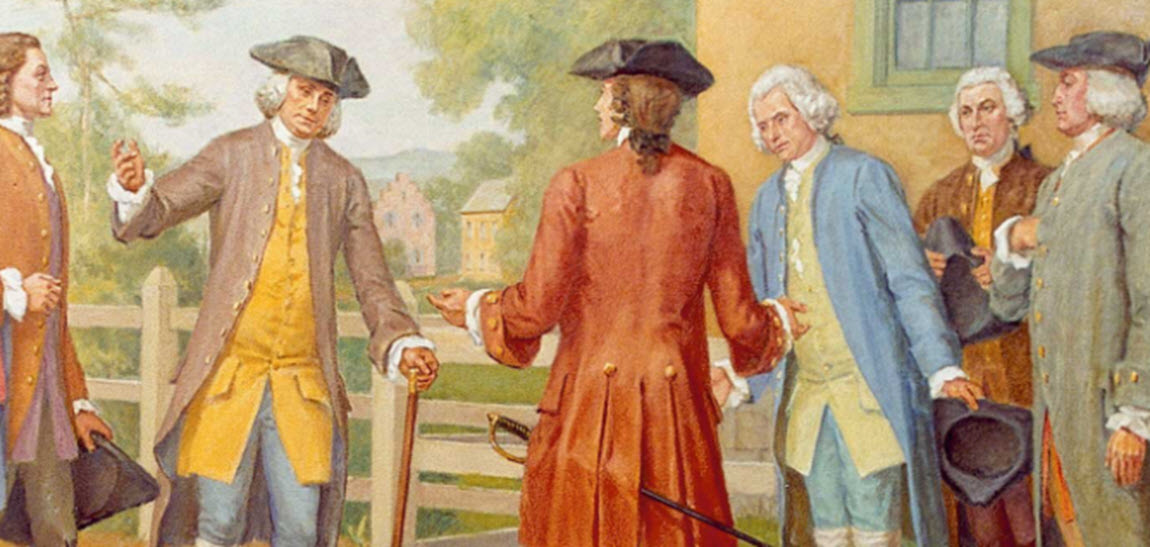This article describes the goals of the Albany Congress - one of the first instances of colonial unity during the Pre-Revolutionary Era.

The Albany Congress, held in June and July of 1754 in Albany, New York, was convened against the backdrop of escalating tensions between the British colonies and the French Empire in North America. With both European powers vying for control of strategic territories and lucrative fur trade routes, colonial leaders recognized the need for a unified response to the looming threat of conflict and encroachment.
The Albany Plan of Union
At the heart of the Albany Congress was the Albany Plan of Union, a visionary proposal put forth by Benjamin Franklin and Thomas Hutchinson, among others, aimed at establishing a centralized colonial government with authority over defense, Indian affairs, and trade regulation. The plan called for the creation of a grand council composed of representatives from each colony, empowered to levy taxes, raise troops, and negotiate treaties on behalf of the collective.
At Least the Colonies Proved They Could Unite
While the Albany Plan of Union ultimately failed to gain the approval of the colonial assemblies or the British government, its significance lies in its recognition of the need for collective action and cooperation in the face of external threats. By proposing a framework for intercolonial governance and coordination, the Albany Congress set a precedent for future efforts to unite the colonies in pursuit of common goals.
Despite the failure to adopt the Albany Plan in its entirety, the congress did yield some tangible outcomes. Delegates from seven colonies—Massachusetts, New Hampshire, Connecticut, Rhode Island, New York, Pennsylvania, and Maryland—unanimously endorsed a resolution calling for the establishment of a colonial union for mutual defense. Additionally, the congress initiated discussions on the need for greater cooperation in Indian affairs and border defense, laying the groundwork for future collaborations.
Related activities
Advertisement

